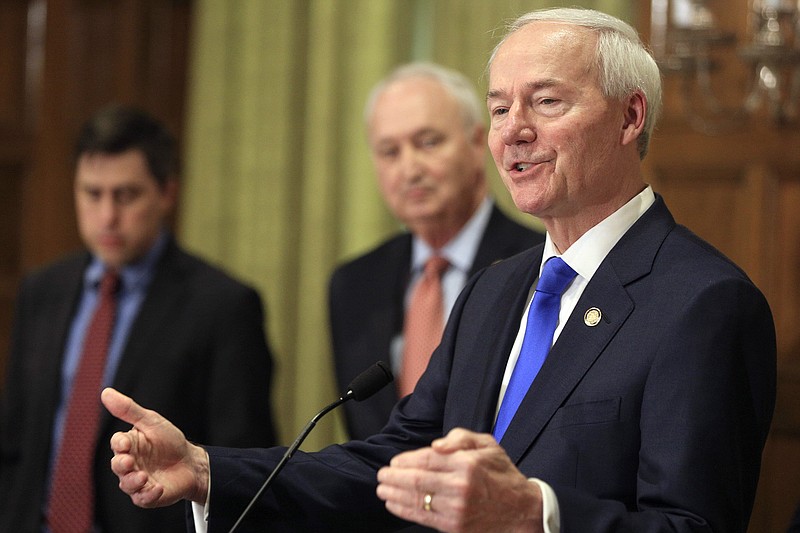No "blue state bailout" is a rallying cry for many congressional Republicans as attempts to provide more federal aid to a nation stricken by an ever-worsening coronavirus pandemic remain stuck in neutral.
Yet it's not just Democratic states asking for help amid plunging tax revenue, rising joblessness and a stuttering economy. Plenty of Republican-led states are feeling the pain, too.
Last week, five GOP governors made a joint statement calling for Congress to pass a relief package to help their states deal with the fallout from the fast-spreading pandemic.
"The people in our states continue to pay a high price for Congress' inaction," said the statement from the Republican governors of Arkansas, Maryland, Massachusetts, New Hampshire and Vermont. "There is no more room for partisan positioning and political gamesmanship."
Alaska, Florida and Texas are among other Republican-led states where tax revenue has taken a hit.
Sending tens of billions in unrestricted aid to state and local governments has been a key sticking point for congressional Republicans, including Senate Majority Leader Mitch McConnell, R-Ky. The Democratic-controlled House passed a relief bill late last spring that included about $900 billion in direct aid to governments. One of the latest compromise proposals has that amount down to $160 billion, but even that appears too much for many Republican lawmakers.
"Under no circumstance should American taxpayers be responsible for the excesses of wasteful states like New York and California," said Sen. Rick Scott, R-Fla.
While New York had a $6 billion budget deficit before the pandemic hit, in large part because of rising Medicaid costs, California's economy was roaring. The state had record tax revenue and had built up $21 billion in reserves.
States have been hit especially hard if they rely on tourism -- Republican-led Florida and Democratic-led Hawaii and Nevada among them -- or energy. That group includes Alaska, North Dakota and Wyoming, all led by Republican governors and legislatures.
A Moody's Analytics report in September found all of them with above-average revenue loss. Florida's situation is less dire because the state does not tax income, but state officials still expect revenue to be $5.4 billion less over the next year and a half than before the pandemic.
The bipartisan National Governors Association is calling for $500 billion over three years to stabilize government finances. The group says the infusion is needed because deep government cuts that could happen otherwise would make the overall economy worse.
Across the country, the shortfalls have meant pay cuts for some government workers, delayed road projects and cancellation of police academy classes. Last week, Hawaii Gov. David Ige announced a plan to furlough 40,000 state workers next year, even though the savings would cover less than one-fourth of the state's $1.4 billion budget gap.
While states such as Idaho and South Carolina have fared relatively well financially through the pandemic, some GOP-controlled states are facing budget problems. In Mississippi, lawmakers last week proposed a budget for the coming fiscal year that would include cuts for universities, community colleges, prisons, mental health and child protection services.
Texas went from projecting a $3 billion surplus in late 2019 to expecting a $4.6 billion shortfall by summer. In Kansas, where Republicans control the Legislature, Democratic Gov. Laura Kelly told legislative leaders Friday that the state will have to pay for its own expanded coronavirus testing program at a cost of $120 million for just eight weeks if it doesn't get more federal aid.
Information for this article was contributed by John Hanna, Audrey McAvoy and Brian Witte of The Associated Press.




